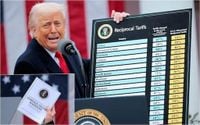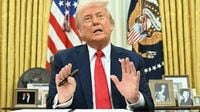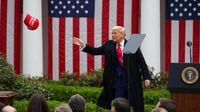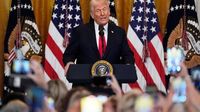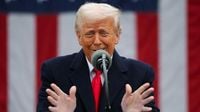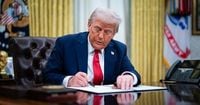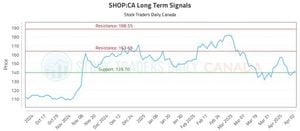On April 2, 2025, President Donald Trump declared it "Liberation Day" as he announced sweeping tariffs on imports from various countries, including the European Union. The tariffs, which target countries with which the U.S. has trade relations, are seen as the culmination of Trump's "America First" policy aimed at boosting domestic production by making imports more expensive.
"Today is a historic day for America," Trump stated during a press conference at the White House, where he was flanked by workers from the automotive industry. He emphasized the need for reciprocal tariffs, stating, "This is one of the most important days in American history. It’s time for us to thrive again and make America great once more." The tariffs announced include a staggering 46% on imports from Vietnam, alongside 20% on EU products, 10% on goods from Great Britain, and 34% on Chinese imports.
European leaders have been swift to respond. Italian President Sergio Mattarella labeled the tariffs a "profound mistake," urging a united and determined response from Europe. "We need a compact, serene, and determined response from the EU," he stated during a meeting with Estonian President Alar Karis. Similarly, Italian Prime Minister Giorgia Meloni expressed her concerns, stating, "We must work to avoid a trade war that would benefit neither the U.S. nor Europe, but we must also prepare adequate responses to defend our production if necessary."
Ursula von der Leyen, President of the European Commission, confirmed that she is in contact with EU leaders to coordinate a response to the tariffs. "We are working towards a strong and unified response to these measures," she said, highlighting the importance of solidarity among EU member states. France has indicated that a formal response could come by the end of April, with discussions ongoing among member states.
The announcement has raised concerns across various sectors, particularly in Europe, where businesses fear the economic repercussions of a trade war. The European stock markets reacted negatively to the news, with Milan's stock exchange closing down by 1.03% and other major indices in decline. Economic analysts predict that the tariffs could exacerbate inflation and slow down growth, with Emanuele Orsini, the president of Confindustria, stating that the impact will be significant but that Europe should avoid unnecessary conflict with the U.S.
In the U.S., the initial market reaction was mixed. While Wall Street experienced a positive close with the Dow Jones rising by 0.56%, analysts warn that the long-term effects of the tariffs could lead to increased inflation and a slowdown in economic growth. Christine Lagarde, President of the European Central Bank, stated, "The only certainty is that these tariffs will not be positive for the global economy."
The tariffs have drawn criticism not only from European leaders but also from various sectors within the U.S. itself. Many economists and business leaders worry that the tariffs could lead to job losses and increased prices for consumers. A recent survey indicated that 58% of Americans fear the tariffs will harm the economy, with many believing that they will lead to higher inflation.
In response to the impending tariffs, the Canadian Minister of Finance, François-Philippe Champagne, announced that Canada is preparing a strong response. Similarly, the Mexican government is expected to unveil an economic plan that will address the tariffs while also focusing on strengthening the national economy.
As the situation unfolds, various industries are bracing for the impact of the tariffs. The automotive sector, in particular, is facing uncertainty, with Trump announcing a 25% tariff on foreign cars, effective April 3. This decision has prompted concerns from major automakers, who have been lobbying for exemptions on certain parts.
In the agricultural sector, Italian companies are particularly anxious. Francesco Mutti, CEO of Mutti, a leading tomato products company, expressed his worries about the tariffs, stating, "The choice of the U.S. administration to impose trade tariffs is alarming and is historically illogical, especially given the strong ties between Europe and the U.S."
Looking ahead, the European Union is under pressure to respond effectively to the U.S. tariffs. The European People's Party (EPP) has called for a coordinated response that is proportional and equitable among all member states. Jörgen Warborn, a spokesperson for the EPP, emphasized the need for unity, stating, "Our response should be equivalent to U.S. tariffs while remaining compliant with WTO rules to uphold global trade standards."
As the deadline for the U.S. tariffs approaches, the international community watches closely, with many hoping for a resolution that avoids a full-blown trade war. The stakes are high, and the implications of these tariffs could ripple through the global economy for years to come.
In a world increasingly fraught with economic uncertainty, the actions taken by both the U.S. and its trading partners will be critical in determining the future landscape of international trade. With leaders on both sides calling for negotiation and dialogue, the hope remains that a cooperative solution can be found before the economic fallout escalates further.
